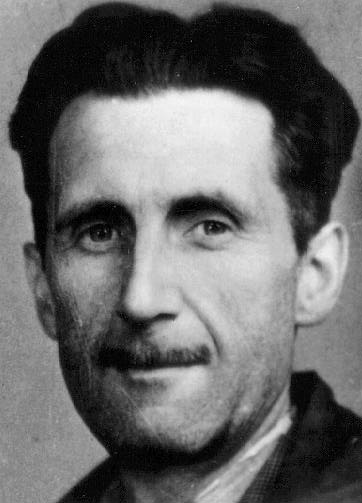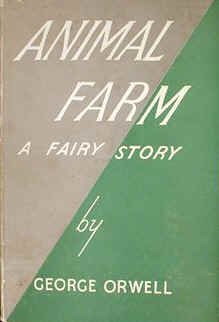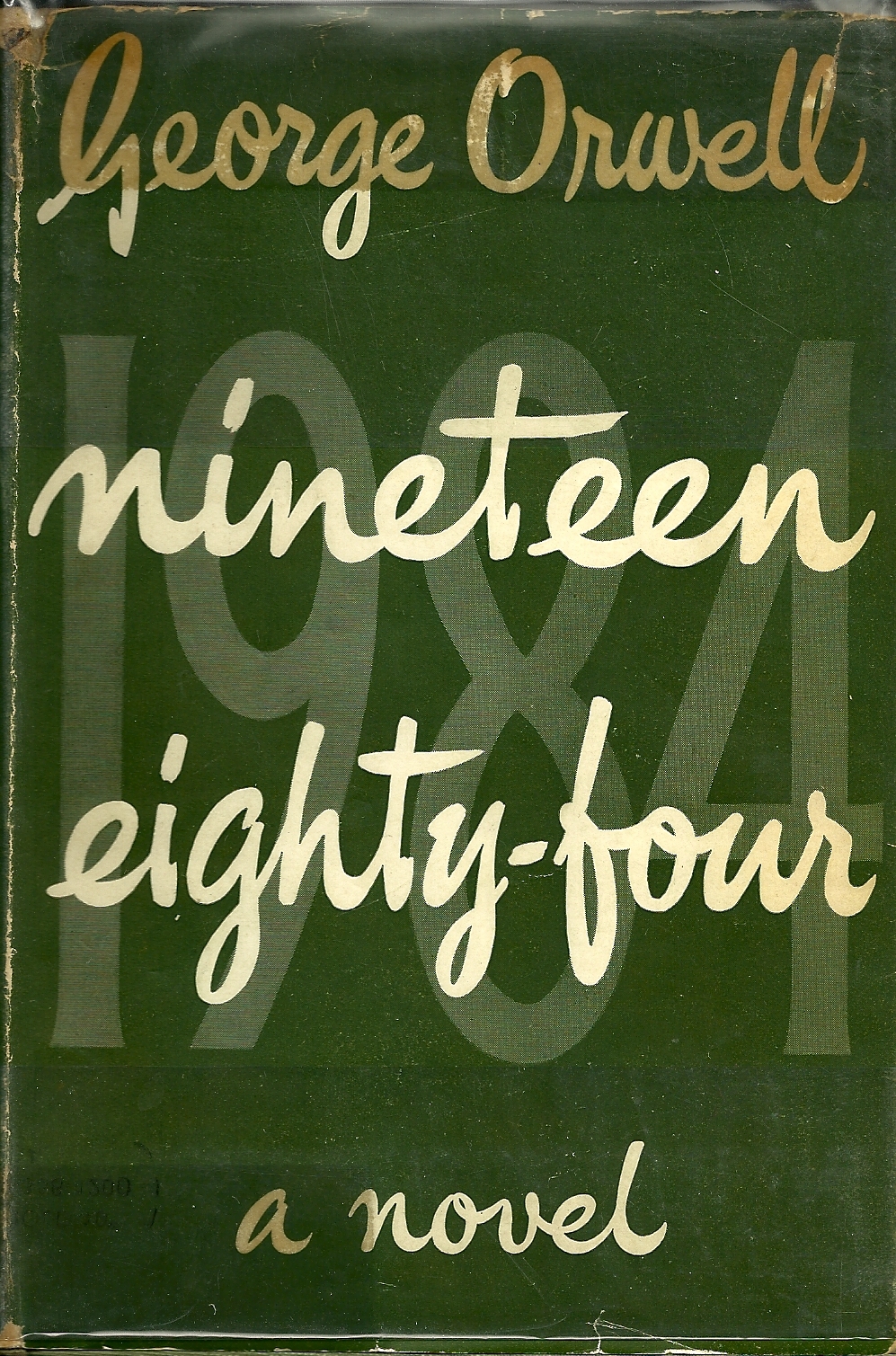A brief bio of George Orwell, author of “1984”
 “George Orwell” was born Eric Arthur Blair on June 25, 1903 in Bengal, which was then a British colony in India. He went to Wellington for one term on scholarship, then moved to Eton, also on scholarship. After Eton, he joined the Indian Imperial Police in Burma from 1921-1928. He resigned and moved back to England.
“George Orwell” was born Eric Arthur Blair on June 25, 1903 in Bengal, which was then a British colony in India. He went to Wellington for one term on scholarship, then moved to Eton, also on scholarship. After Eton, he joined the Indian Imperial Police in Burma from 1921-1928. He resigned and moved back to England.
He adopted the pen name George Orwell in 1933 while he was writing for New Adelphi. George came from St. George, the patron saint of England, and Orwell was from the River Orwell in Suffolk, a favorite English site.
He lived in poverty for some time and wrote about it in his first novel, Down and Out in Paris and London (1933). His next novel, Burmese Days, was published in 1934 and made clear his distaste for imperialism that had developed during his time with the Indian Imperial Police. He became a teacher and an assistant in second hand bookshops to support himself, which he wrote about in Keeping the Aspidistra Flying.
He volunteered to fight for the Republicans against Franco’s Nationalist uprising in Spain’s Civil War. He fought as an infantryman in the far-left non-Stalin POUM – the Workers’ Party of Marxist Unification. He wrote about those experiences in a non-fiction piece entitled Homage to Catalonia. He was shot in the neck in 1937 and wrote an essay called “Shot by a Fascist Sniper” about the experience. He left Spain with his wife, Eileen, narrowly missing being arrested when the communists tried to suppress POUM.
Back in England, he supported himself by writing book reviews for New English Weekly until 1940. He was a member of the Home Guard during WWII and began working for the BBC on programs produced for the war effort. He knew he was producing propaganda and, despite generous pay, he resigned from the BBC in 1943 to become literary editor of the Tribune.
 In 1944 he finished his novel Animal Farm and that provided him with his first comfortable income of his adulthood. In June of that year, he and Eileen adopted a three-month-old baby boy and named him Richard. In early 1945 Orwell was sent to Europe as a war correspondent. He was hospitalized in France in March with lung trouble. While there he received a telegram that his wife had died during a surgery.
In 1944 he finished his novel Animal Farm and that provided him with his first comfortable income of his adulthood. In June of that year, he and Eileen adopted a three-month-old baby boy and named him Richard. In early 1945 Orwell was sent to Europe as a war correspondent. He was hospitalized in France in March with lung trouble. While there he received a telegram that his wife had died during a surgery.
The remaining years of Orwell’s life were filled with paradox. He had the son he had always longed for, along with financial stability, but neither wife nor health to enjoy these things. He took his son to live on the island of Jura, a remote and rugged spot off the west coast of Scotland. Few places could have been worse for his lung condition, which was finally diagnosed as tuberculosis. 1984 was published in June of 1949. Orwell was dead a little over a year later. He was 47 years old.
He was an anti-Stalinist and anti-Communist, but he remained to the end a man of the left and, in his own words, a ‘democratic socialist’ who was very supportive of the British Labour Party. He wrote:

Orwell was known for his insight about the political implications of the use of language, which was clearly demonstrated in his invention of Newspeak, a variant of English in which vocabulary is strictly limited by government decree for the purpose of limiting independent thought, in 1984.
[various sources, including The Road to 1984 by Peter Lewis]
